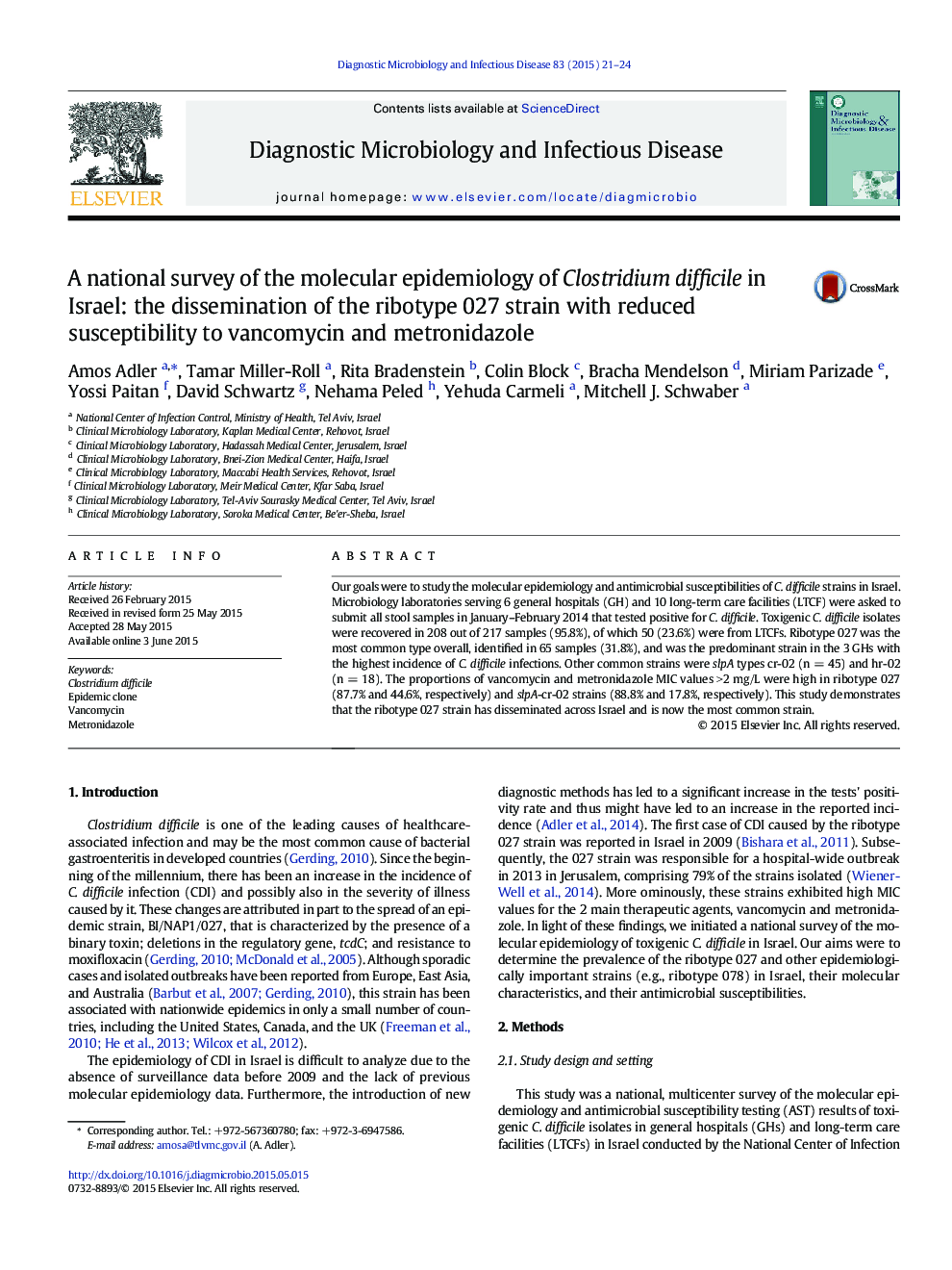| Article ID | Journal | Published Year | Pages | File Type |
|---|---|---|---|---|
| 6115577 | Diagnostic Microbiology and Infectious Disease | 2015 | 4 Pages |
Abstract
Our goals were to study the molecular epidemiology and antimicrobial susceptibilities of C. difficile strains in Israel. Microbiology laboratories serving 6 general hospitals (GH) and 10 long-term care facilities (LTCF) were asked to submit all stool samples in January-February 2014 that tested positive for C. difficile. Toxigenic C. difficile isolates were recovered in 208 out of 217 samples (95.8%), of which 50 (23.6%) were from LTCFs. Ribotype 027 was the most common type overall, identified in 65 samples (31.8%), and was the predominant strain in the 3 GHs with the highest incidence of C. difficile infections. Other common strains were slpA types cr-02 (n = 45) and hr-02 (n = 18). The proportions of vancomycin and metronidazole MIC values >2 mg/L were high in ribotype 027 (87.7% and 44.6%, respectively) and slpA-cr-02 strains (88.8% and 17.8%, respectively). This study demonstrates that the ribotype 027 strain has disseminated across Israel and is now the most common strain.
Related Topics
Life Sciences
Immunology and Microbiology
Applied Microbiology and Biotechnology
Authors
Amos Adler, Tamar Miller-Roll, Rita Bradenstein, Colin Block, Bracha Mendelson, Miriam Parizade, Yossi Paitan, David Schwartz, Nehama Peled, Yehuda Carmeli, Mitchell J. Schwaber,
